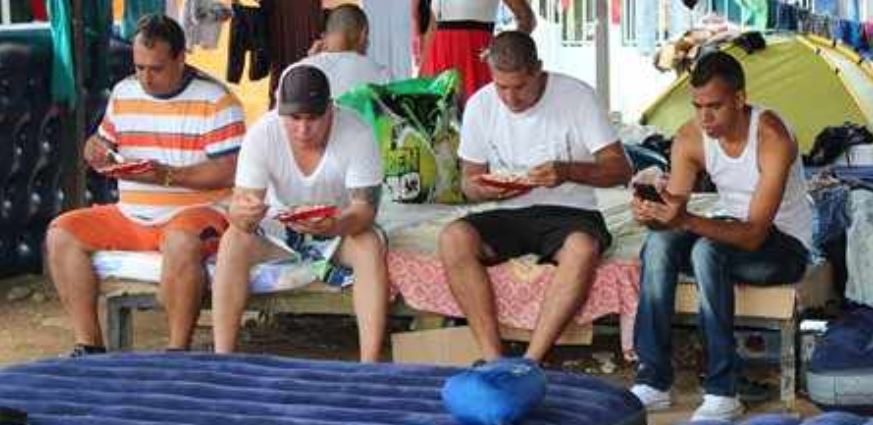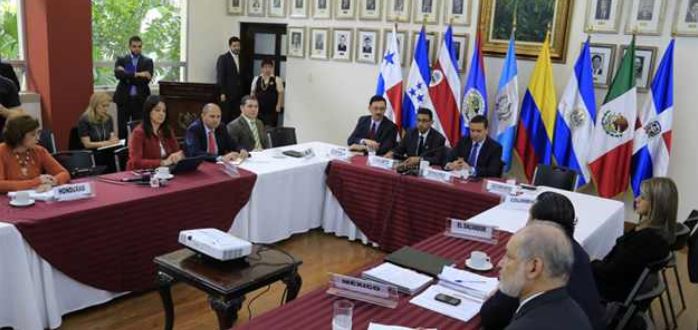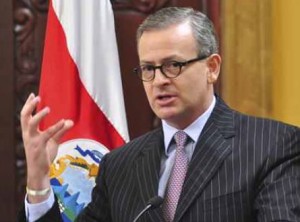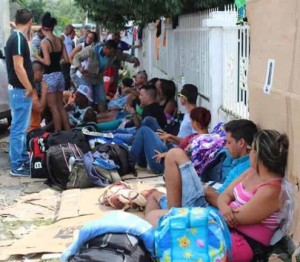
Cuban migrants will be flown from Costa Rica to El Salvador
Members of the Central America Integration System agreed on Monday (Dec. 28) on a plan to begin removing the thousands of Cuban migrants who are now marooned in Costa Rica and facilitating their passage to the United States through the Mexican border.
[For background in Progreso Weekly, click here.]
At a meeting in the Guatemalan Foreign Ministry, representatives from Guatemala, Costa Rica, Belize, El Salvador, Honduras, Panama, Mexico, and the International Organization for Migration agreed to start removing the migrants by plane from Costa Rica to El Salvador.

From there, the migrants will proceed by bus to Guatemala, thence to Mexico. The country providing the planes for the airlift was not named. The number of Cubans in the first flight was not disclosed.
A spokeswoman at the Costa Rican Foreign Ministry told The Associated Press that it will be up to the migrants to pay the cost of their travel.

After that, “the thousands of Cubans now in Costa Rican territory may continue their journey to the United States, after a safe, orderly and documented passage for these persons has been agreed upon,” said a statement from the Costa Rican Foreign Ministry.
No further details were announced because, according to Costa Rican Foreign Minister Manuel A. González Sanz, “several countries requested secrecy and discretion about the details of the accord and we must respect that request.”
The Costa Rican Foreign Ministry statement added that “it was agreed to carry out a pilot exercise of humanitarian transfer during the first week in January. To this effect, a work group has been formed that will arrange for the coordination necessary for this first transfer.”
González also said that the parties to this agreement “reiterate their commitment against human trafficking and against the networks of coyotes who affect the region, as well as their commitment to human dignity and the political will to find solutions.”
However, he stressed that “this is an absolutely exceptional solution for the people who are already in our territory” because Costa Rica does not have the capacity to welcome and grant transit visas to any more people.

The Costa Rican authorities estimate that the Cuban migrants on their soil number between 5,000 and 7,000.
In Havana, Foreign Minister Bruno Rodríguez Parrilla asked that “the solution for the thousands of Cuban migrants in Costa Rica be adequate, that it take into account the welfare of those citizens and be as swift as possible.”
Cuba did not send a representative to the Guatemala meeting, he said, “because it applies specifically to the nations that must find formulas to reach a solution.”
“The politicization of the United States’ migratory policy toward Cuba must change,” he added. The U.S. “must cease encouraging an illegal, unsafe and disorderly emigration.”
According to Vatican Radio, Pope Francis said on Sunday (Dec. 27) that, “My thoughts in this moment go out to the numerous Cuban migrants who find themselves in difficulty in Central America, many of whom are victims of human trafficking. I invite the countries of the region to renew with generosity all necessary efforts in order to find a rapid solution to this humanitarian drama.”

